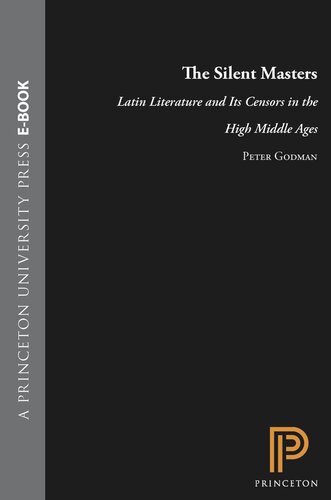

Most ebook files are in PDF format, so you can easily read them using various software such as Foxit Reader or directly on the Google Chrome browser.
Some ebook files are released by publishers in other formats such as .awz, .mobi, .epub, .fb2, etc. You may need to install specific software to read these formats on mobile/PC, such as Calibre.
Please read the tutorial at this link: https://ebookbell.com/faq
We offer FREE conversion to the popular formats you request; however, this may take some time. Therefore, right after payment, please email us, and we will try to provide the service as quickly as possible.
For some exceptional file formats or broken links (if any), please refrain from opening any disputes. Instead, email us first, and we will try to assist within a maximum of 6 hours.
EbookBell Team

4.0
46 reviewsIn the tension between competing ideas of authority and the urge to literary experiment, writers of the High Middle Ages produced some of their most distinctive achievements. This book examines these themes in the high culture of Western Europe during the eleventh and twelfth centuries, showing how the intimate links between the writer and the censor, the inquisitor and the intellectual developed from metaphors, at the beginning of the period, to institutions at its end. All Latin texts--from Peter Abelard to Bernard of Clairvaux, from the Archpoet to John of Salisbury and Alan of Lille--are translated into English, and discussed both in terms of their literary qualities and in relation to the cultural history of the High Middle Ages. Not a proto-Renaissance but part of a continuity that reached into the Reformation, the eleventh and twelfth centuries witnessed a transformation of the writer's role. With a combination of literary, philological, and historical methods, Peter Godman sets the work of major intellectuals during this period in a new light.